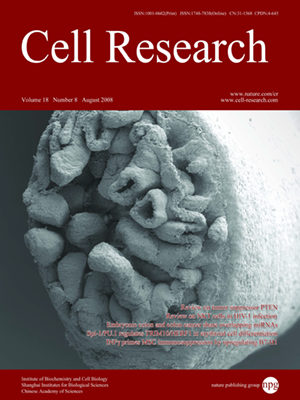
Volume 18, No 8, Aug 2008
ISSN: 1001-0602
EISSN: 1748-7838 2018
impact factor 17.848*
(Clarivate Analytics, 2019)
Volume 18 Issue 8, August 2008: 817-822
REVIEWS
NKT cells in HIV-1 infection
Demin Li and Xiao-Ning Xu
MRC Human Immunology Unit, Weatherall Institute of Molecular Medicine, John Radcliffe Hospital, Oxford University, Headington, Oxford OX3 9DS, United Kingdom
Correspondence: Xiao-Ning Xu Demin Li,(xiaoning.xu@imm.ox.ac.uk; demin.li@imm.ox.ac.uk)
Natural killer T (NKT) cells are a unique T cell population that have important immunoregulatory functions and have been shown to be involved in host immunity against a range of microorganisms. It also emerges that they might play a role in HIV-1 infection, and therefore be selectively depleted during the early stages of infection. Recent studies are reviewed regarding the dynamics of NKT depletion during HIV-1 infection and their recovery under highly active antiretroviral treatment (HAART). Possible mechanisms for these changes are proposed based on the recent developments in HIV pathogenesis. Further discussions are focused on HIV's disruption of NKT activation by downregulating CD1d expression on antigen presentation cells (APC). HIV-1 protein Nef is found to play the major role by interrupting the intracellular trafficking of nascent and recycling CD1d molecules.
Cell Research (2008) 18:817-822. doi: 10.1038/cr.2008.85; published online 22 July 2008
FULL TEXT | PDF
Browse 1989


